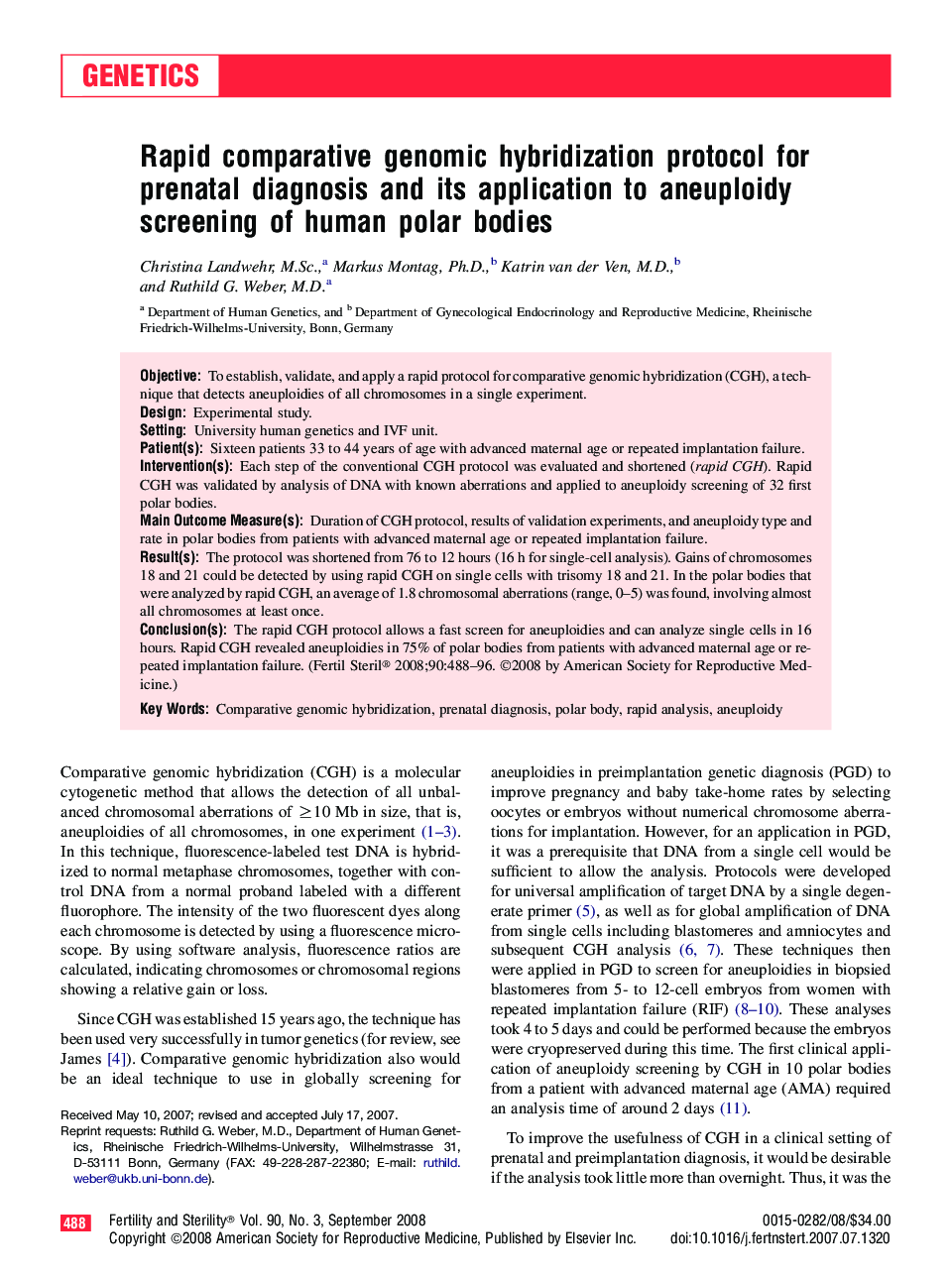| Article ID | Journal | Published Year | Pages | File Type |
|---|---|---|---|---|
| 3939802 | Fertility and Sterility | 2008 | 9 Pages |
ObjectiveTo establish, validate, and apply a rapid protocol for comparative genomic hybridization (CGH), a technique that detects aneuploidies of all chromosomes in a single experiment.DesignExperimental study.SettingUniversity human genetics and IVF unit.Patient(s)Sixteen patients 33 to 44 years of age with advanced maternal age or repeated implantation failure.Intervention(s)Each step of the conventional CGH protocol was evaluated and shortened (rapid CGH). Rapid CGH was validated by analysis of DNA with known aberrations and applied to aneuploidy screening of 32 first polar bodies.Main Outcome Measure(s)Duration of CGH protocol, results of validation experiments, and aneuploidy type and rate in polar bodies from patients with advanced maternal age or repeated implantation failure.Result(s)The protocol was shortened from 76 to 12 hours (16 h for single-cell analysis). Gains of chromosomes 18 and 21 could be detected by using rapid CGH on single cells with trisomy 18 and 21. In the polar bodies that were analyzed by rapid CGH, an average of 1.8 chromosomal aberrations (range, 0–5) was found, involving almost all chromosomes at least once.Conclusion(s)The rapid CGH protocol allows a fast screen for aneuploidies and can analyze single cells in 16 hours. Rapid CGH revealed aneuploidies in 75% of polar bodies from patients with advanced maternal age or repeated implantation failure.
